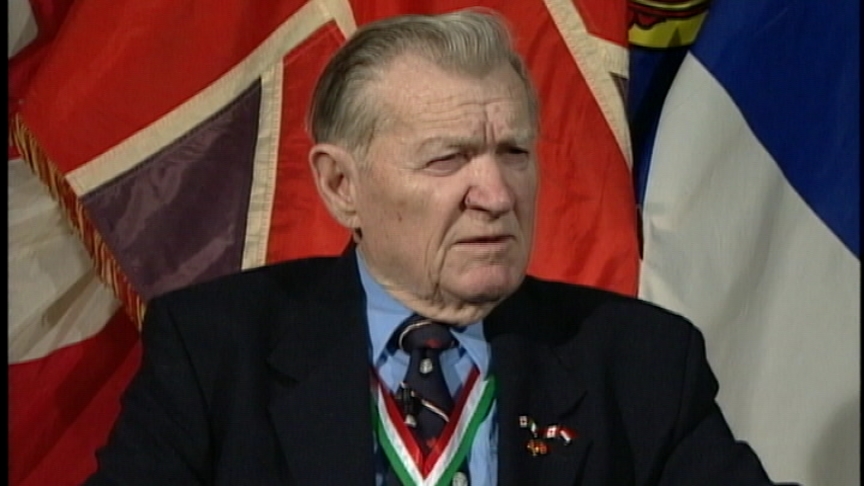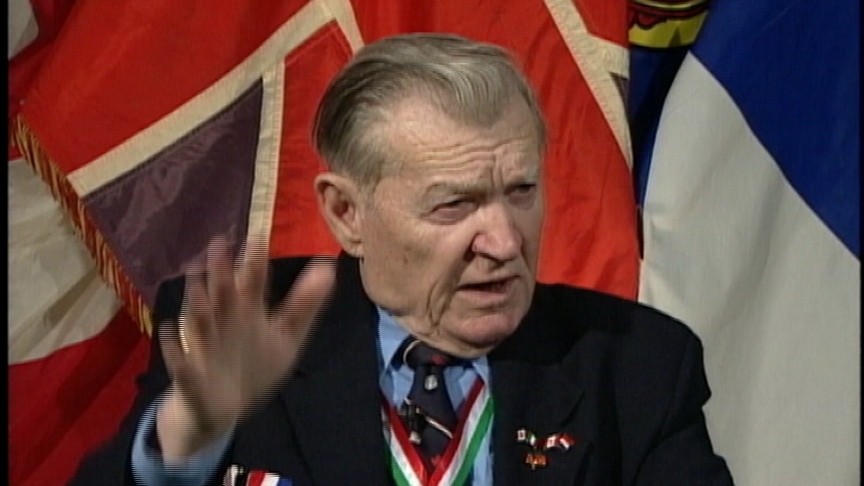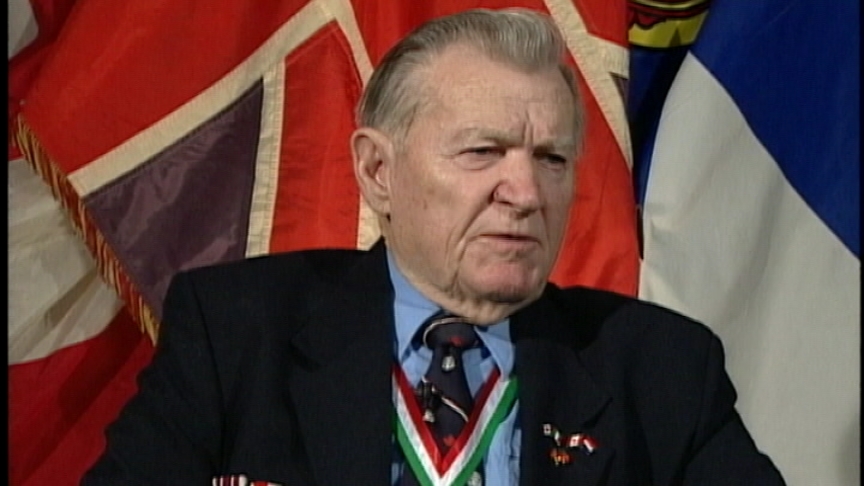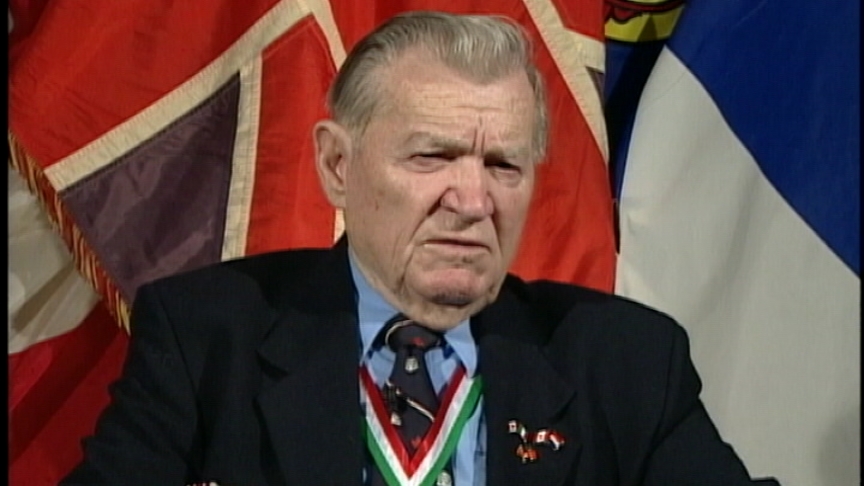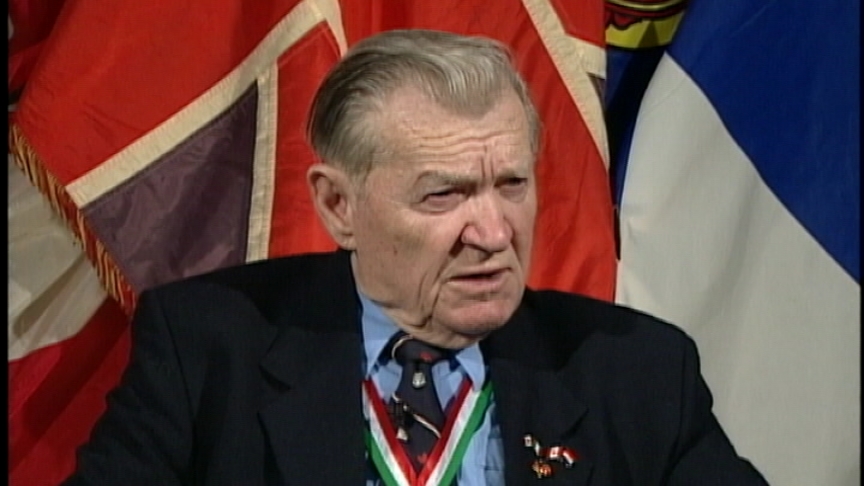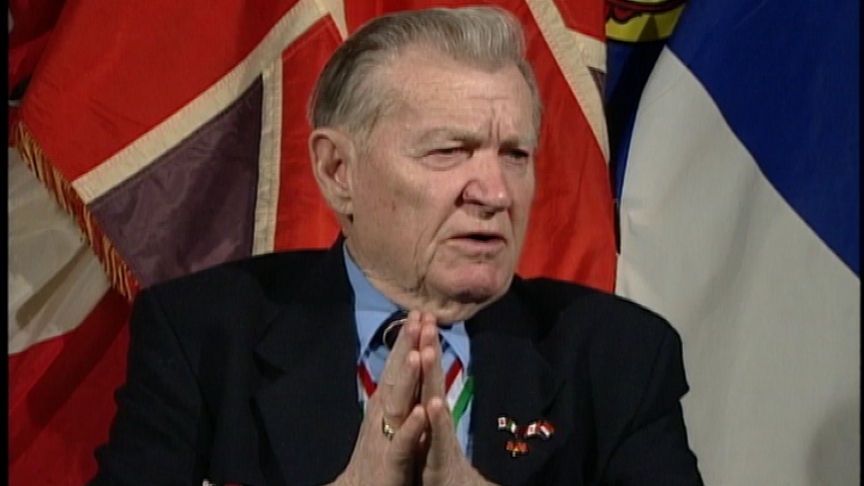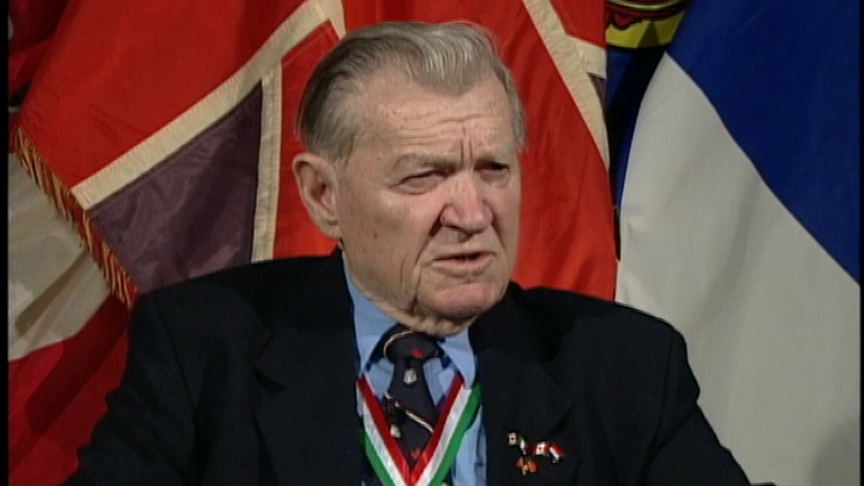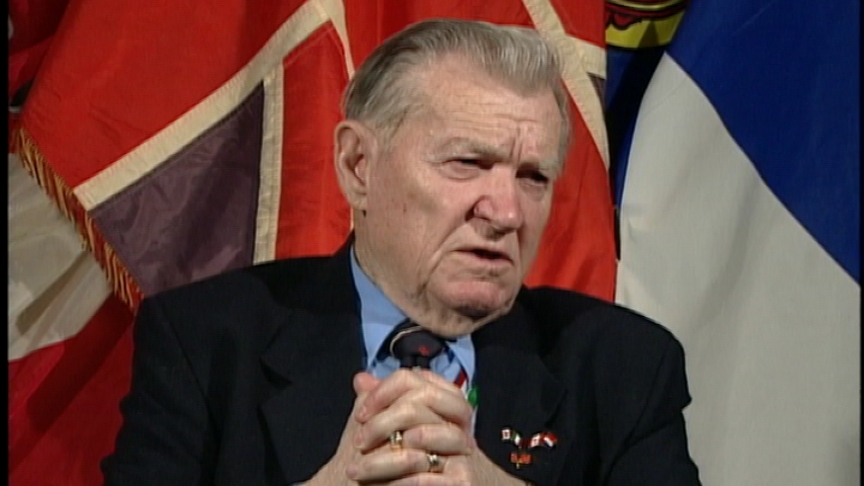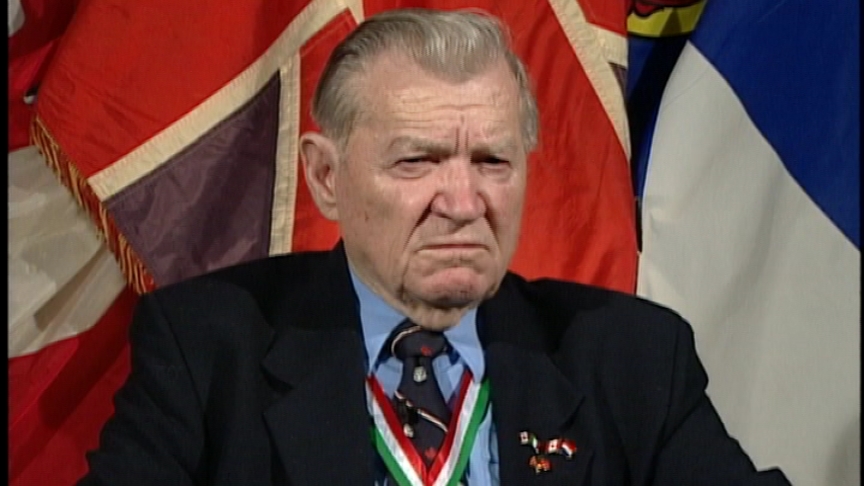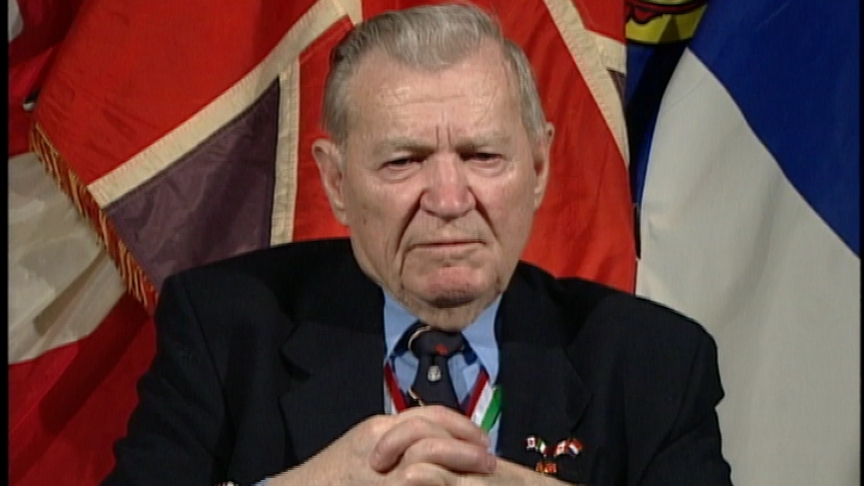Taking a Hit for the New Guy
Heroes Remember
Taking a Hit for the New Guy
We got this reinforcement, it was raining out and I had, been
there about two or three days we were in a holding position and
this young fellow came in and he was, this is the front lines
now, and he was asking me "Anybody getting killed up here?" ,
you know he was, he was very nervous. And I looked back behind
him and I seen a mule train coming with our supplies and I knew
the Germans were looking at them. So I said to him, I said
"Look, if we don't get out of here, you'll find out shortly."
And I no sooner got the words out of my mouth then I got hit,
right straight through my knee joint. Right through the knee
joint. And I guess every time that fellow saw a mule after that
he must have got scared. But that's the you know, they didn't,
he didn't know and I had more, I didn't have sense enough, I was
telling him, you know, to come into my dugout until he could get
one for himself the next day, or dig one in the side of the bank
eh? And it was my stupidity that I, I knew when I'd seen the,
I should have moved, but I was waiting for him and...
There was a, Ghurkha Indian got, he didn't get hit with me, but
I was watching him, he, one of the mules, the piece of shrapnel
that got me, cut the ankle off of the mule and I think the
Indian, they loved their mules eh? So I think he bent down and
touched it and when he, he touched it, the mule kicked him, and
when he stood up the mule give it to him again eh and he went
down and he didn't get up the second time. So he was on the
stretcher going, we were on the back and we had two, a jeep
could take two stretchers. So we had to come back about ten
miles and we were on the back, two stretchers on the back of a
jeep. It was pretty rough, but you know we were happy to get out
of there. And, you know, when I got in there, I suppose you know
our nurses and doctors, they, they, my God they worked hard
because there were, a lot of wounded in there. And my wound
wasn't looked at from, I got hit about four o'clock and it
wasn't looked at ‘till about nine or ten o'clock that night. And
you're supposed to release the artery every fifteen minutes. So
when I went in, and they looked at my leg, and they went and
they got some kind of a heater and put it under my, put me on
the two chairs and they had the heater going and every once in a
while they came in with a scissor and tried the bottom of my
foot. And about five o'clock in the morning he came in and I
felt it. He said, the doctor said to me "We said we were just
going to take your leg off." So, when I went in I met one
stretcher coming out and me going in and when I went in the
nurse was asleep. She fell asleep, dead tired eh. And she said
and she looked at me and she said "Thank God you're the last
one." So they worked hard, they worked hard. It was, it was
great, it was great for me because I was sent back to England, I
was in the hospital there for seven months on white sheets,
the nurses looking after ya, it was great.
Related Videos
- Date modified:



